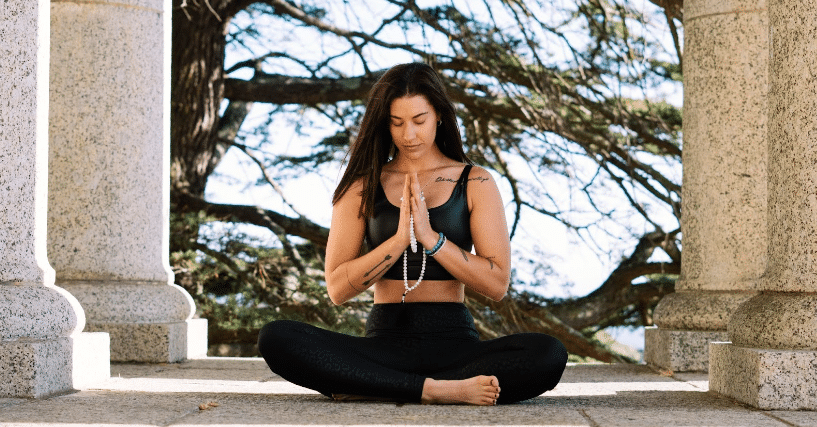
Mindfulness is more than a state of being. It’s an art, and while many of us love the idea of mindfulness, the implementation into our lives is not as seamless as we might hope. However, with practice, you can become the expert in your own blend of this art form.
Like all forms of therapeutic support, mindfulness is rooted in evidence that has developed over time both in our facility and in the broader community beyond us. We want to share these mindfulness tips with you to help you to have a rich mindfulness practice this Mental Health Awareness Month.
What does it mean to be mindful?
In general, mindfulness speaks to a state of being one with your awareness. When you are mindful, you are aware of your feelings, your body and the world around you at this moment; your awareness is not wandering on a journey through your lifespan in either direction.
Wit that said, successfully engaging in a mindfulness practice is not just the moments you spend actually being mindful. The healing power of mindfulness is embodied in the way you engage with the world, how you express yourself and even the way you feel your emotions.
Here are five ways to be mindful right now
1. Try Square breathing.
Each part of your breathing should take four seconds in this exercise. Inhale- hold- Exhale- hold.
2. Color!
Whether you use an app or you put color to paper in the physical sense, the act of coloring is a meditative practice when you focus wholly on it.
3. Do a sun salutation.
Yoga’s foundational 26-posture sequence is designed to help you feel grounded to the Earth as well as your body. Do one cycle of sun salutation asana today.
4. Fixated gaze practice.
Find one object in the room or space around you, and focus on it. Try to take in its details while observing nothing else around you until it all falls away. Set a timer if you’re prone to getting lost in this space.
5. Scan your body.
Close your eyes and sit in a space where you can turn your focus inward. Then, beginning at the top of your head or the tips of your toes, move through every muscle, soft space and joint and observe what’s happening in that area of your body.
 The key elements of mindfulness
The key elements of mindfulness
Like most aspects of our lives, mindfulness is a series of moving parts. It functions for each of us like a bespoke puzzle whose pieces are shaped by the experiences we have. No two souls will experience mindfulness the same way; but even so, there are elements that run through mindfulness as universal themes.
Acceptance
Your mindfulness practice is rooted in an ability to accept what you find within or beyond yourself. The key here is knowing that accepting something as your current reality does not mean you have to tolerate or embrace it as your future. Even the truths you accept can be altered to suit your needs for fulfillment.
Patience
Change and growth are not overnight success stories we can will ourselves into. They are as much a practice as the mindfulness itself, so patience is a critical step in finding your way forward through a mindful awareness of your holistic healing.
Non-judgment
You cannot hate your past into changing, and you cannot shame your future into compliance. You must check judgment at the door of your mindfulness journey in order to make sustainable changes. Whatever you’ve done and whomever you’ve been, bring acceptance with you here instead of judgment.
Trust
Trusting yourself may feel difficult while you are learning how to be aware of your most reliable self. Hearing the voice of your truth instead of the voice of fear or past pain comes with time, so if you’re still working on trusting yourself, try trusting the journey of mindfulness to get you there.
Support
When you struggle to find support in your friends or loved ones, look outside yourself and see if there is community in other parts of your life than can support you along your mindfulness journey. Alumni support groups at Villa Kali Ma are a lifelong connection to others who understand where you’ve been, and you may also try support in spaces like classes or clubs.
Here are 5 ways to grow your mindfulness practice
1. Add mindfulness to your routine tasks
You can’t mindfully will away your commute or housework, but you can incorporate things like a meditative podcast, playlist or breathing exercise into your routines as you do them!
2. Bring mindfulness to your meals
Getting mindful about your food routine can go a long way in connecting to your body and healing your health. Try meal planning and intentional ingredients to get mindful about the way you nourish your body.
3. Buddy up
Ask a friend to be your mindfulness buddy. You can share mindfulness tips, support one another on hard days, and work together to build accountability into a loving practice you share.
4. Make mindfulness a musical endeavor
Add the soundscapes and music that makes you feel calm into a playlist so that you have your mindfulness in your pocket. Mental Health Awareness Month is a great time to look for new tunes to add to it as well.
 5. Start a journaling practice
5. Start a journaling practice
Journaling has many benefits, and as a mindfulness tip, it can help you to stay on track. You can use your journal to freehand the thoughts that crop up during the day, or to intentionally document a mood or habit you want to keep track of.
Are you feeling inspired to begin or refresh your mindfulness practice today? We want to hear all about it! Join us on Instagram or subscribe to our newsletter using the bar below to keep up with mindfulness tips, tricks and happenings within the Villa Kali Ma world today!

